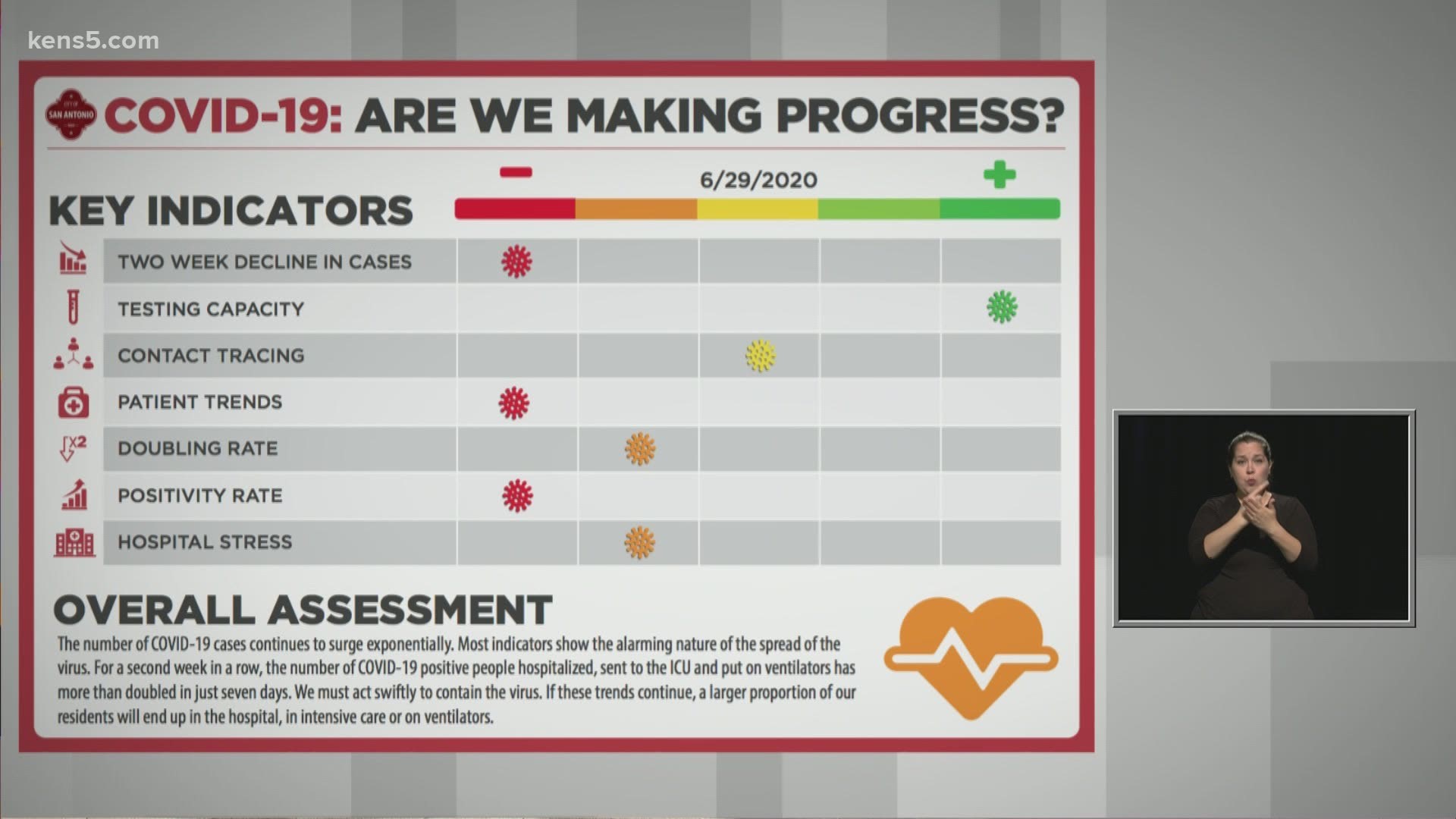SAN ANTONIO — As cities across the nation grapple with mass unemployment, San Antonio Economic Development Foundation SA Works Executive Director Romanita Matta-Barrera is hoping years-long efforts to diversify the area economy will help facilitate a rebound.
"We have always been very much working in lockstep with our employers and looking to recruit companies to San Antonio that will help add to our diversified sector, and I think that is what has helped us remain a bit more resilient as a community," Matta-Barrera said. "We have always diversified our sectors in terms of focusing on tech, bioscience, cybersecurity, advanced manufacturing- so that has really allowed San Antonio's economy to remain resilient, pre-COVID and certainly that is our focus into this new normal."
The City of San Antonio recently approved a "Recovery and Resiliency Plan," which allocates around $80 million for Workforce Development. City, county, state, nonprofit, education and employer partners will coordinate and offer re-training programs to prepare people for available positions.
"Someone who has worked in the hospitality industry, let's say, in their facilities and maintenance department to keep hotels looking beautiful and pristine," Matta-Barrera said, as an example. "That person already has a lot of the technical skills someone in logistics or warehousing or manufacturing, they have that technical aptitude to be able to quickly transition into a job that will require manual capabilities."
Matta-Barrera says it all starts with an intake process. She says many people are already in the Workforce Solutions Alamo system after being dislocated from their jobs and submitting unemployment claims. She says they'll assess what job someone was dislocated from, identify their skills, education and previous earnings, and refer them to other organizations providing case management and wraparound services.
The goal is to address holistic needs of each person; some may only need help finding a job, but others may need assistance with childcare or transportation as well.
"From there, it kicks off to a training program," Matta-Barrera said. "It could be at Alamo Colleges; historically it's our largest workforce training program into short-term training; ideally, what training program or certification, maybe around 3 months or 6 weeks. UTSA, Texas A&M San Antonio, UIW, transitioning what has been traditional course offerings to accelerated courses to adults who might need it."
In addition to a large number of mid-career San Antonians now searching for new employment, there are also high school and college students and recent graduates facing an unexpected economy.
Matta-Barrera says growth mindset, flexibility, technical attributes and tech literacy skills will be critical, and encourages local employers to continue offering internships and entry-level programs, even if they're remote.
"There's a lot of creative ways to offer our young people, including high school or college students, that opportunity. Work experience has never been more important for this young generation and so we ask our employers to please consider opening their virtual doors to interns," Matta-Barrera said.
"This generation- they're tech nativists. They have been working and communicating this way; we can help them transition readily to take what they've done for social communications into a professional environment."
Tourism and hospitality industries continue to take a hard hit, with restrictions on travel and gathering. Matta-Barrera says safety measures and building consumer confidence will be critical.
"Our tourism industry has been very hard-hit and with that comes a combination- the hotel industry, the convention industry, food and beverage, hospitality; all of those support services that make the tourism industry vibrant, [including] some of our local shops downtown," Matta-Barrera said. "From the beginning as we started to see those industries being impacted because of the inability to travel or gather, we started reaching out to Visit San Antonio and organizations like them."
Along with the industries that took hard hits, were some that saw growth and opportunity, including bioscience and technology.
"What we hear from our local manufacturers is also an opportunity for them to pivot and create more of a local or domestic supply chain so we're not as vulnerable either to global pandemics, where we're reliant on a global supply chain that may be impacted," Matta-Barrera.
Along with providing immediate assistance, Matta-Barrera says San Antonio Works is focused on the long-term, attracting employers and building current businesses that offer a wide range of opportunitiys.
"They are sectors that provide economic mobility for residents at various education levels," Matta-Barrera said. "So we'll take manufacturing for example; you can have a high school diploma or certification and you can start at $60,000 with any one of our larger manufacturers, automotive, food manufacturing."
Despite unprecedented challenges, Matta-Barrera says she believes, with time, San Antonio will turn things around.
"Extremely hopeful and optimistic," Matta-Barrera said, citing county, city, employer and philanthropic collaboration.
"That will not change- that level of collaboration, because it's really critical. All of us have a role to play."
To learn more about the programs SA Works offers or to find ways you can help, visit SanAntonioWorks.org.
You can listen to this episode of Commerce Street below:

